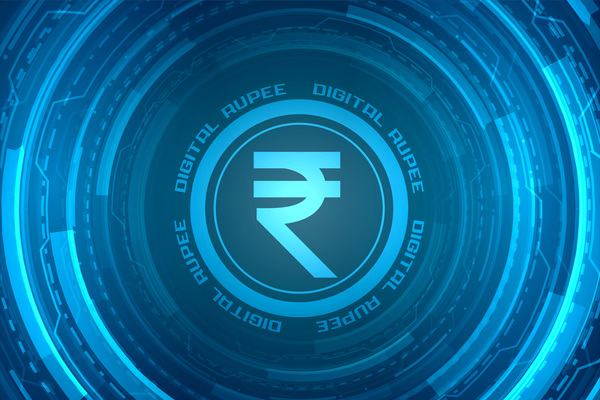What is Digital Rupee?
Who Can Use Digital Rupee and How Does It Benefit You?
What's more, Digital Rupee offers a number of benefits over traditional forms of currency. Here are some of the ways in which it can benefit you:
- You can use it for transactions both online and offline
- You can use it to buy goods and services from a variety of merchants
- You can use it to pay bills and taxes
- You can use it to transfer money to other individuals or businesses
What are the banks offering retail digital Rupee?
- State Bank of India
- ICICI Bank
- Yes Bank
- IDFC First Bank.
- Bank of Baroda
- Union Bank of India
- HDFC Bank
- Kotak Mahindra Bank
Cities which can access this retail digital Rupee?
- Mumbai
- New Delhi
- Bengaluru
- Bhubaneswar
- Ahmedabad
- Gangtok
- Guwahati
- Hyderabad
- Indore
- Kochi
- Lucknow
- Patna, and Shimla.
How to Register For Digital Rupee?
RBI Digital Rupees Types:
- Retail or general purpose (CBDC-R)
- Wholesale (CBDC-W) (CBDC-W).
Conclusion
The RBI has been quite successful in its goal of transitioning the country to a digital economy. The advantages of a digital rupee are plenty, and the RBI is committed to ensuring that citizens are able to make the most of this transition. With all the benefits that a digital rupee offers, it's clear that this is a step in the right direction for the country's economy.FAQs
Q. Can I buy Digital Rupee?
Yes, you can buy Digital Rupee, through RBI approved pilot banks. In the first phase, you can buy from the 4 banks namely. SBI, ICICI, Yes Bank and IDFC.Q. How is Digital Rupee different from UPI?
The next question you may be asking yourself is how Digital Rupee is different from Unified Payment Interface (UPI). Let's look at the details.
Both UPI and Digital Rupee are digital payment methods, offering a secure, convenient, and instant way to make payments. However, Digital Rupee is is a type of paper currency that can be withdrawn from a bank account. On the other hand, UPI is an interface via which you can transfer physical money.
Ultimately, both UPI and Digital Rupee are digital payment systems that have their respective advantages and disadvantages. Depending on your needs and preferences, you should evaluate both options before deciding which fits your lifestyle best.
Q. Can I use digital rupee to shop like UPI or credit cards?
This new form of digital currency offers a convenient way to shop from stores and malls with just a QR code. You can store the digital rupee in your wallet and use it to pay for goods and services at any store that accepts it.Q. Which cryptocurrency is approved by RBI?
RBI currently does not recognize or approve any cryptocurrency. However, the RBI have launched its own digital rupee currency as a digital form of India's rupee backed by the government.
The RBI has introduced some cryptocurrency regulations, with the aim of controlling money laundering and other financial crimes. In addition, it has asked all financial institutions to stop dealing with any business related to virtual currency within three months from April 6th, 2018. This order was extended in July 2018, after an interdepartmental committee was formed to examine all aspects related to cryptocurrency and blockchain technology.
Q. Can I use Digital Rupee to transfer money to friends and families like UPI?
Yes, you can transfer money using digital rupee to your friends and families. Just like UPI, the other person also, should have digital rupee wallet.
Q. Is digital currency real money?
You may be wondering if digital rupee is real money, or just a digital representation of it. The answer is definitely yes! Digital rupee is fully regulated and secure digital money, backed by the Reserve Bank of India. It allows for easier, smoother, and safer transactions across a variety of digital platforms.Unlike other digital currencies such as bitcoin, digital rupee is not volatile in nature because it is regulated by the RBI. This means that its value will remain stable over time. Furthermore, digital rupee transactions are verified by the government, so you can rest assured that your transactions are safe and secure.

Comments
Post a Comment